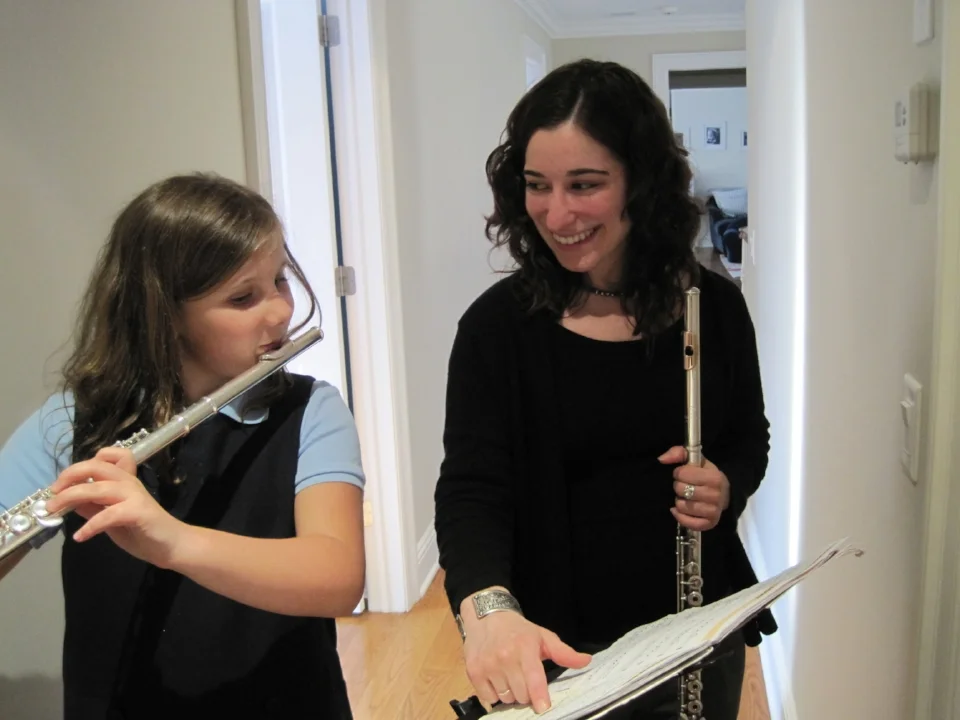Private Lessons:
Melanie Chirignan is currently accepting private students as well as offering Skype lessons.
Melanie's teaching studio is located out of Schenectady, NY and services the Greater Albany area as well as providing lessons nationally and internationally via Zoom. For address and directions, please use the contact page.
Teaching Hours:
Monday: 2PM-8PM
Tuesday: 2PM-8PM
Wednesday: 2PM-8PM
Thursday: 2PM-8PM
Friday: 2PM-7PM
Saturday: 11-4 PM
Sunday: 11-4 PM
If you would like to set up a meeting with Melanie, please call or use the contact form to set up an appointment.
Teaching Philosophy:
"I teach music because it is necessary and unique, because it engages all domains of the brain, including the psychomotor, the affective, and the cognitive. Only through music can we communicate on such a different, meaningful level. Once a student begins to understand music, they can become an educated music consumer, and hopefully a lifelong concert go-er and supporter of the arts. There are a myriad of extra-musical reasons to learn music as well. As long as a student is interested in learning, I will teach them and do my best to inspire them.
Because music affects all parts of the brain, music can be taught by multiple learning modalities. The self discipline and self-motivation a student gains from learning an instrument can be applied to anything the student wants to learn. Showing students what to do so they can have the technique they need to express their musical ideas, gives them an outlet for self-expression. In order to create phrasing, decision making skills are employed. Since music is such a personal experience, bonds are made with others through playing music, which is such a different way of communicating. Showing students how to practice helps students become independent and hopefully life-long learners. Developing a love and appreciation for music also helps students understand cultural and therefore themselves and others. Studying music also helps us create a thorough understanding of history. Reading music builds fluency with reading, and builds listening skills. With all these benefits one can gain from studying music, there is no doubt that music is essential.
Students learn best in a relaxed, nurturing environment. I believe in order to successfully teach, I need to be encouraging, and truly care about the students. My goal is to always have the students improve. To do this, I think students need a well-balanced diet of tone (Moyse De la Sonorite can be used), technique (scales for younger students, Maquarre Daily Exercises or Taffanel and Gaubert Daily Exercises for more advanced students), etudes (Melodious and Progressive Studies), and pieces (I consult the NYSSMA manual for appropriate pieces for the students level). Having taken Alexander Technique, I strongly emphasize posture so that students can use their bodies in the most efficient way. Individualized instruction allows for teachers to cater to the needs of the student, challenging the students without frustrating them. Everyone is unique and learns at different rates, so no two lessons will ever be the same. I teach students how to practice, so that they can progress outside of the 30 min. or hour long lesson. As for performance standards, I have used rubrics for tone, technique, articulation, phrasing, and breathing. Once strengths and weaknesses are assessed, I create a plan to help the student improve, which is what students and teachers want to hear."
For more information, including a full list of prices and payment options, please send an email via the Contact Page. When inquiring or scheduling online sessions, please include the following information in your email:
Playing history (how many years you've been playing, experiences, repertoire that you've studied, etc...)
What piece(s) you would like to work on (repertoire: current and/or future)
Personal goals for the lessons (development/refinement of technique,. interpretation, theory, etc...)
With this information, I will have a clear idea as to how to approach your lessons and how to better assist you with your musical journey.
Click here to read what students are saying on my google reviews.
